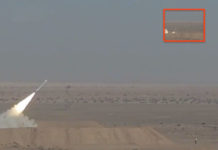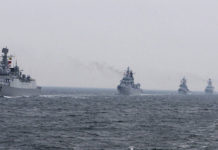
Israeli Prime Minister Benjamin Netanyahu said he was willing to “tolerate personal attacks” if the United States sent weapons after the Biden administration criticized him for a video released earlier this week in which he expressed concern about supporting Washington to his country’s arms.
According to a survey by the Israel Institute for National Security Studies, 15 percent of Israeli respondents are considering leaving Israel. Only 12% of Israelis believe that the objectives of the Gaza war will be fully achieved. Only 36% of Israelis believe that a small percentage of the war goals will be achieved, while 10% believe they will not be achieved. Only 29% of Israelis were ready to encourage their children to participate in battles.
IDF spokesman Rear Admiral Daniel Hagari said Hamas cannot be defeated by clashing with Netanyahu. Long criticized at home and abroad, Netanyahu’s approach is now the subject of deep disagreement with his top brass and his country’s main ally, the United States. And on Wednesday, the Israel Defense Forces’ top spokesman appeared to lay bare the rift at the country’s top levels. The central stated goal of the war in Gaza – to destroy Hamas – was not possible and maintaining it was “throwing sand in the eyes of the public,” Rear Admiral Daniel Hagari said. “Hamas is an idea. Anyone who thinks we can eliminate Hamas is wrong,” Hagari said during an interview with Israeli broadcaster Channel 13. “The political level must find an alternative – otherwise it will remain,” he said, referring to the Palestinian militant group. Hamas has welcomed Hagari’s comments as an “admission” of defeat. “If we don’t bring something else to Gaza, eventually we will have Hamas again,” he warned. The absence of a post-war plan for Gaza was at the heart of the motivations of Gantz to leave Netanyahu’s war cabinet and also drew criticism from Defense Minister Yoav Gallant.
According to the Middle East Observer: “Hezbollah did not suddenly warn Cyprus. All exercises with Israel for attacks and war on Lebanon are publicly announced. Cyprus today denied any possible future involvement”.
Following Hezbollah Secretary General Hassan Nasrallah’s threat against Cyprus for its alleged role in the Israeli attack on Lebanon; the Cypriot embassy in Beirut has suspended the issuing of visas to Lebanese citizens.
Israeli officials have told the United States that they plan to soon shift resources from southern Gaza to northern Israel in preparation for a possible offensive against Hezbollah, but the United States is concerned about the potential vulnerability of Iron Dome if a war breaks out. The US seriously fears that, in the event of a full-blown war between Israel and Hezbollah, the Iranian-backed militant group could overwhelm Israeli air defenses in the north, including the much-vaunted Iron Dome air defense system, CNN reports.
Shaul Goldstein, CEO of Noga Energy, the independent system operator for Israel’s energy grid, said at a conference in Sderot when asked whether the Israeli power grid was prepared for a war against Hezbollah in the north, “After 72 hours without electricity in Israel, it will be impossible to live here. We are in a bad situation and we are not ready for a real war.”
His words wereharshly criticized and Goldstein himself admitted after a few hours that he had been wrong and that he had said things that did not correspond to the truth.
According to US defense, Carrier Strike Group 2, including USS Dwight D. Eisenhower, CVN-69, are currently conducting operations against the Houthi terrorist group in the southern Red Sea, but will soon be redeployed to the eastern Mediterranean to assist Israel in defending the its northern airspace from large-scale attacks by long-range missiles, rockets and drones expected to be launched by Hezbollah at the start of an Israeli land and air offensive in southern Lebanon.
Once in the eastern Mediterranean, the ships will link up with other US and British naval vessels currently deployed in the Mediterranean and from Naval Station Rota in Spain, while coalition forces with the EU’s “Operation Aspides” continue with operations against the Houthis in the Red Sea.
On the war front, revolutionary tactical changes on the Lebanese front should be noted: Hezbollah successfully carried out the first operation using FPVs drones and destroyed a target acquisition and electronic warfare system of the Iron Dome missile defense system. The use of these weapons represents a big and very difficult problem for Israel.
Concerns about the war in Lebanon also affect the US Senate. Republican Senator Marco Rubio, vice chairman of the Senate Intelligence Committee, issued a warning that a “very dangerous war” is brewing in the Middle East between Israel and Hezbollah, and perhaps even Iran.
But the USA is also in the crosshairs. The Iraqi Resistance Coordination Committee released a statement suggesting a consensus among Iran-backed Iraqi militias to resume attacks on U.S. forces. This is the first coordinated statement from the Iraqi Resistance Coordination Committee since attacks on U.S. forces stopped in January 2024 that suggests such a consensus. Iran and Hamas continue to coordinate politically to maintain alignment along the Axis of Resistance during the Israel-Hamas war.
Recent US and Israeli reports have highlighted the threat of Hezbollah rockets, drones and missiles that Israel could face in the event of a major war between Israel and Hezbollah. Hezbollah is targeting Israeli air defense assets and surveillance equipment, likely to create temporary, local advantages against Israel and prepare for a possible escalation. The tactically sophisticated nature of the two Hamas attacks on IDF units in Rafah on June 20 underlines that the two Hamas battalions in Rafah remain cohesive fighting units that have not been defeated or severely degraded. This is consistent with the IDF’s report that it “rather degraded” two of Hamas’ four battalions in Rafah.
The Spanish Minister of Foreign Affairs, José Manuel Albares, and his Qatari counterpart, Mohammed bin Abdulrahman bin Jassim Al Thani, held a press conference in Madrid.
Albares said that: “The cessation of military operations in Rafah is necessary and we will do everything we can to uphold international law. We support the two-state solution and recognize Israel’s right to defend itself from “terrorist” attacks. We want the West Bank and Gaza to form a state once the war is over. We are working with our partners to reduce tension in southern Lebanon and this is another reason to stop the war in Gaza.”
Al Thani added: “We are working to reach a ceasefire agreement and exchange prisoners and detainees. We welcome Spain’s decision to join the case brought by South Africa before the International Court of Justice. The recognition of the Palestinian state is an important message to reject double standards. We are doing everything we can to stop the escalation and completely repel Hezbollah’s threats.”
And now a look at the operations in Rafah and Gaza but sending from the Red Sea.
In the Red Sea region, attacks by Ansarallah militants against military and merchant ships continued unabated. The Houthis fired missiles at a US destroyer, the ship Captain Paris and the tanker Happy Condor, without hitting them.
US naval forces also intercepted several Houthi drones in the Red Sea and the Gulf of Aden. Over the past week, coalition forces have shot down at least ten drones targeting civilian vessels. Unfortunately, the bulk carrier Tutor, hit by a Houthi marine drone, sank.
In response to the Houthi attacks, the US Air Force struck Kamaran Island, Al Hodeidah International Airport and Al Jabin. Several traffic radar stations were hit during Western Coalition airstrikes.
In the northern Gaza Strip, Israeli troops again attacked both satellite towns and the capital of the Palestinian enclave. Residential buildings and infrastructure were damaged: there were civilian casualties.
In the south of the Enclave, IDF units advanced towards the ruins of the former UNRWA warehouse in Al-Shaboura camp, and also expanded their control zone in the Saudi neighborhood of Tell al-Sultan.
In the West Bank, raids by Israeli security forces continued on several settlements, resulting in the detention of several dozen people. And in Al-Faraa the IDF operation led to clashes with local militants.
Along the border with Lebanon, the situation remains tense: Hezbollah fired on a dozen IDF targets, while the Israelis operated throughout southern Lebanon, killing two members of the Lebanese group.
Regular protests have taken place in Israel calling for the release of the hostages and the resignation of the current government. In Tel Aviv, protesters blocked the Ayalon Highway and blocked traffic for several hours.
Antonio Albanese e Graziella Giangiulio
Follow our updates on Geopolitical Gleanings - Spigolature geopolitiche: https://t.me/agc_NW and on our blog The Gleanings of AGCNEWS - Le Spigolature di AGCNEWS: https://spigolatureagcnews.blogspot.com/

















